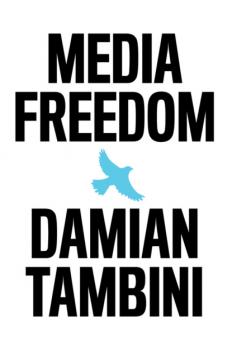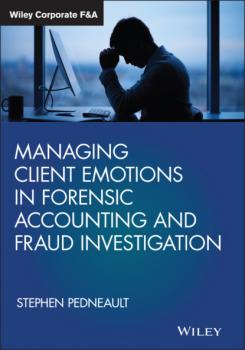John Wiley & Sons Limited
Все книги издательства John Wiley & Sons LimitedMedia Freedom
The contentious role of social media in recent elections and referendums has brought to the fore once again the fundamental question of media freedom and the extent to which, and the way in which, the media should be regulated in a modern democratic society. This book surveys the history of media in the US, the UK and Europe in order to develop a new theory of media freedom that is capable of resolving current controversies about how best to regulate the media, including the internet and social media. Tambini argues that democratic regulation of the media must build upon – and learn from – the long history of accommodation between the press, broadcasting, the state and corporate power. By attending to this history, we can see that media freedom is not absolute but rather conditional, taking the form of a social contract of privileges and connected duties. Tambini develops this social contract account of media freedom and applies it to different media sectors, from the press and broadcasting to the internet and social media. Above all, he argues for a renewed role for international human rights law standards in media governance, and an end to American exceptionalism. Written for students, scholars, policymakers and media professionals, this wide-ranging book will be of interest to everyone concerned about the role of the media in our societies and about the health of our democracies.
Nature's Evil
This bold and wide-ranging book views the history of humankind through the prism of natural resources – how we acquire them, use them, value them, trade them, exploit them. History needs a cast of characters, and in this story the leading actors are peat and hemp, grain and iron, fur and oil, each with its own tale to tell. The uneven spread of available resources was the prime mover for trade, which in turn led to the accumulation of wealth, the growth of inequality and the proliferation of evil. Different sorts of raw material have different political implications and give rise to different social institutions. When a country switches its reliance from one commodity to another, this often leads to wars and revolutions. But none of these crises goes to waste – they all lead to dramatic changes in the relations between matter, labour and the state. Our world is the result of a fragile pact between people and nature. As we stand on the verge of climate catastrophe, nature has joined us in our struggle to distinguish between good and evil. And since we have failed to change the world, now is the moment to understand how it works.
Emergency Medical Services
The two-volume Emergency Medical Services: Clinical Practice and Systems Oversight delivers a thorough foundation upon which to succeed as an EMS medical director and prepare for the NAEMSP National EMS Medical Directors Course and Practicum. Focusing on EMS in the ‘real world’, the book offers specific management tools that will be useful in the reader’s own local EMS system and provides contextual understanding of how EMS functions within the broader emergency care system at a state, local, and national level. The two volumes offer the core knowledge trainees will need to successfully complete their training and begin their career as EMS physicians, regardless of the EMS systems in use in their areas. A companion website rounds out the book’s offerings with audio and video clips of EMS best practice in action. Readers will also benefit from the inclusion of: A thorough introduction to the history of EMS An exploration of EMS airway management, including procedures and challenges, as well as how to manage ventilation, oxygenation, and breathing in patients, including cases of respiratory distress Practical discussions of medical problems, including the challenges posed by the undifferentiated patient, altered mental status, cardiac arrest and dysrhythmias, seizures, stroke, and allergic reactions An examination of EMS systems, structure, and leadership
Managing Client Emotions in Forensic Accounting and Fraud Investigation
Manage client emotions in forensic accounting and fraud investigations While many resources exist that outline the primary functional aspects of conducting a forensic accounting or fraud investigation, this book is the first of its kind in addressing the significance of client emotions during investigations and how important the management of those emotions is to the investigation as a whole. Forensic accounting expert Stephen Pedneault has nearly 30 years of experience conducting such fraud investigations, and has become an expert in this form of holistic engagement management. In this comprehensive resource, Pedneault shares his real-world experiences to help the reader understand exactly what role client emotions can play in a fraud investigation, and how to acknowledge and address the emotions of all parties right from the start. Included in the book are pragmatic strategies for managing emotions throughout an engagement, starting with the initial client meeting. Readers will also learn how to develop their own personal approach to managing individuals’ emotions throughout an investigation, which has proven to be much more effective than ignoring or underestimating the role that emotions can play. The book: Is the first resource specifically addressing client emotions in fraud investigations Includes tips for dealing with emotions and managing expectations from the initial meeting Prepares practitioners for future engagements with a new, unique perspective on managing emotions Helps fraud investigators and forensic accountants develop their own personal approaches to dealing with individuals and their emotions For accountants, auditors, fraud investigators, and others in the field, this complete, groundbreaking resource is the quintessential guide to managing client emotions in forensic accounting and fraud investigations.
The 12 Week Year for Writers
Praise for The 12 Week Year for Writers “We writers are a peculiar bunch, so I am impressed how Trevor manages to bridge high-performance practices into our creative world and make it feel natural. This book will help practitioners of The 12 Week Year for Writers method feel in charge of their writing projects and make continuous progress. That is a remarkable feat.”—CHRISTIAN TIETZE, writer, app developer, and Zettelkasten zealot A Note From the Creators of The 12 Week Year “We wrote the first version of our New York Times bestseller, The 12 Week Year , in just 12 weeks using our own system. Since then, we’ve helped people and companies all over the world to unlock their capabilities and accomplish more. With this new book The 12 Week Year has been adapted specifically for the challenges of writers. If you are a student, a professional, a full time author, or you just love to write, this book is for you. Get it, study it, apply it, and you will cut months, (maybe even years), off the time it takes to produce your best work.”—Brian Moran and Michael Lennington, authors of The 12 Week Year
Overcoming Internet Addiction For Dummies
A guidebook to beating internet addiction and screen overuse and for living a fuller life There’s no escaping it―we live in a digital world. We work, play, socialize, and learn online, and the Internet provides many amazing opportunities. Unfortunately, because of our basic biology, we’re all susceptible to overuse and addiction to screens. Video games, social media, porn, and even scrolling online, taps into that pleasurable dopamine reward system. So, when is it time to log off or put the phone down and get help? Overcoming Internet Addiction For Dummies gives you the information, resources, and the self-assessment tools you need to discover how much is too much , along with practical suggestions on what to do about it. Learn how to take back control of your time and attention—or help your kids or loved ones get control of theirs. This comprehensive, user-friendly overview of Internet addiction is full of helpful and proven methods to help foster a healthy, balanced, and sustainable life with screens. Discover the basic biology of addiction, including why children and teens are especially susceptible. Become aware of the cognitive, psychological, and physical effects excess Internet and screen use. Learn how social media, video gaming, and Internet pornography could be getting in the way of real-time living. Find out why smartphones are not smart for you to use all the time. Understand the science of how and why you can become addicted to your screens so you can unplug more easily and use your time for what matters most. Empower yourself and your children to build a positive relationship with the Internet and digital technology. This book can help you and your loved ones plug back into life and show you where you can find information, resources, support, and treatment. Overcoming Internet Addiction is about taking back control of your time and attention and learning to manage your screen use, so it doesn’t manage you.









